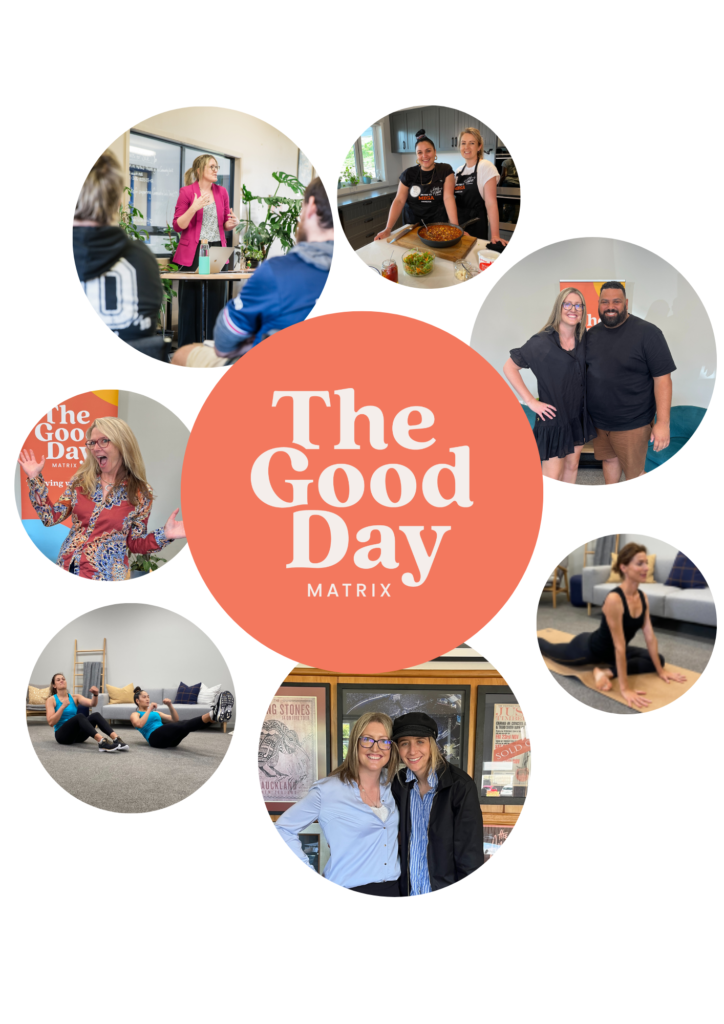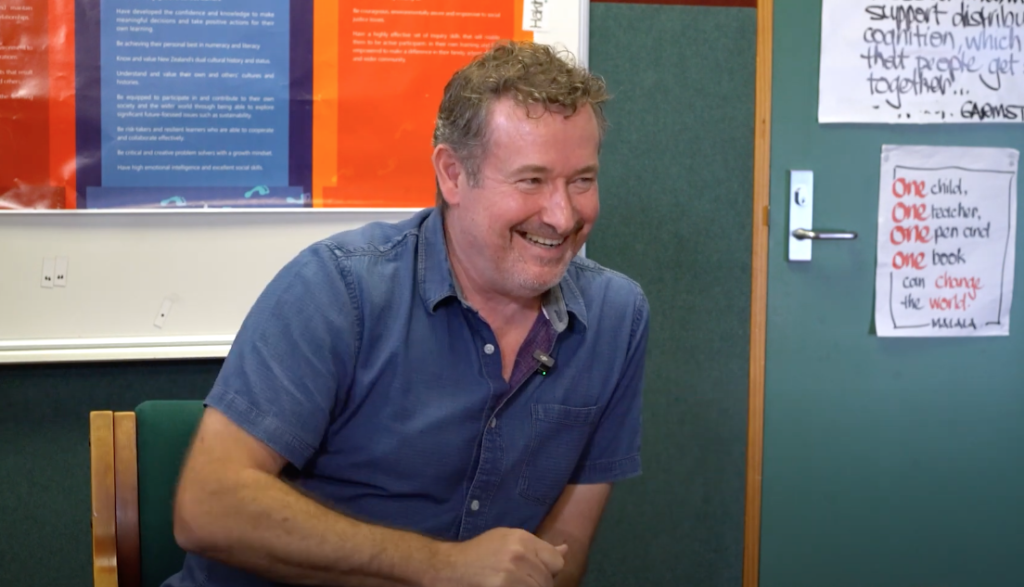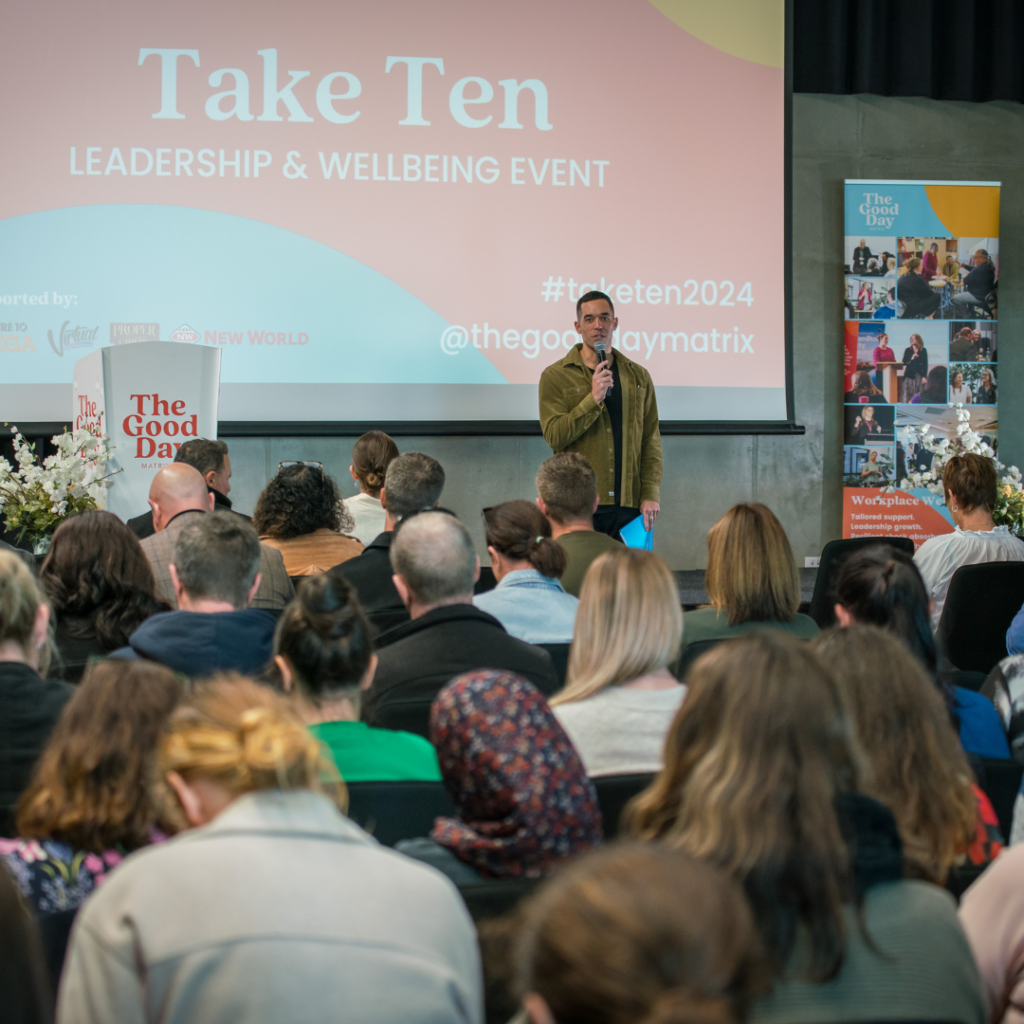Written by Daz Burns
How we say our words.
How we communicate our messages;
Matters more than the words themselves.
Our decision-makers need to know that though our bottom line is a high priority, our people and how we communicate our care for them, matters immeasurably.
Wellbeing isn’t a ‘nice to have’
Workplace wellbeing should be at the forefront of every single conversation leaders are involved in.
Though I am going to focus on Aotearoa in this kōrero, universally, the mental health of every single one of our team should be considered, valued and supported by every single person in our workplace.
Stress.
Anxiety.
Burnout.
Frustration.
Worry.
Depression.
Whatever the label or words are that someone is using to describe where they’re at.
We need to listen.
But, more than that, we need to do what we can in our workplaces to offer other pathways that don’t end with these words.
Work shouldn’t lead to burnout.
It is our legal responsibility to care for our people.
To listen.
To stop fostering the negative pathways that eventually lead to negative mental health outcomes.
Workplace wellbeing is not a “nice to have”, the truth is, it never has been.
The question
Sometimes I get taken back when someone challenges why wellbeing is ‘so important.’
I literally got asked this week “what problem does wellbeing solve?”
Because to get funding, resourcing and support from their leaders, they need to be able to financially justify what investing in wellbeing will do for their bottom line.
When these moments happen, I can hear the song “six months in a leaky boat” start in the background, imagining people scooping water out of their proverbial leaky boat with a sieve while the water keeps coming in.
Possibly my future responses should be:
“What problem does burnout solve?”
“What problem does anxiety solve?”
“What problem does “always on” culture solve?”
But more importantly (and much more productively), what I should say is, that you can’t solve a problem you do not understand and that as Albert Einstein said “not everything that can be counted counts, and not everything that counts can be counted.”
It is so important for us to look at root causes of mental health and wellbeing, not the effects.
Because, at the end of the day, performing at our optimal best is not sustainable if it is unhealthy.
The systems that maintain this negative culture can not continue to survive if we all challenge the status quo, loudly, with intent to drive positive, sustainable change for our people!
Our words matter
I really love Henry Winkler’s words “the tone makes the music”.
How we say our words.
How we communicate our messages;
Matters more than the words themselves.
Our decision-makers need to know that though our bottom line is a high priority, our people and how we communicate our care for them, matters immeasurably.
Often we have HR leaders, wellbeing leaders or C suite whānau who are tasked with taking care of their teams’ wellbeing.
And as we know, our perspective is different to EVERYONE else, so we need to make sure we don’t make assumptions about what we think we know they need.
We need to make sure we put this question to everyone on our team BEFORE we make decisions and genuinely listen to the answers – “What is important to you with regard to workplace wellbeing here?” and “What actions would reflect that priority in our workplace?”
So, some questions I would love to put to you and your leaders and your people is:
- “How can you sustain wellbeing all year round in your workplace?”
- “What weekly team rituals can you create that support workplace wellbeing?”
- “How can you make wellbeing a natural part of your day at work?”
- “What can we do to engineer interaction back into our workplace?”
- “What stress reducing activities can we introduce into our workplace everyday?”
As leaders, shifts towards positive and effective workplace wellbeing starts with us.
What you do.
How you measure success.
How you communicate your priorities.
How you make decisions.
What you value.
How you show up.
Where you put your time.
ALL MATTERS.
You taking a proactive approach to checking in with your team instead of waiting for problems to be brought to you;
Matters.
I can’t wait for the day when it is common practice for us to focus on the GWB (General Wellbeing) of our people, not not just on the GDP (Arianna Huffington).
So, be intentional.
Change the focus.
Change the game.
Think differently.
Thrive together.
Daz xx













 Date: October – Clear your Friday’s!!
Date: October – Clear your Friday’s!!  Time: 9am – 1pm
Time: 9am – 1pm Location: Kirikiriroa
Location: Kirikiriroa